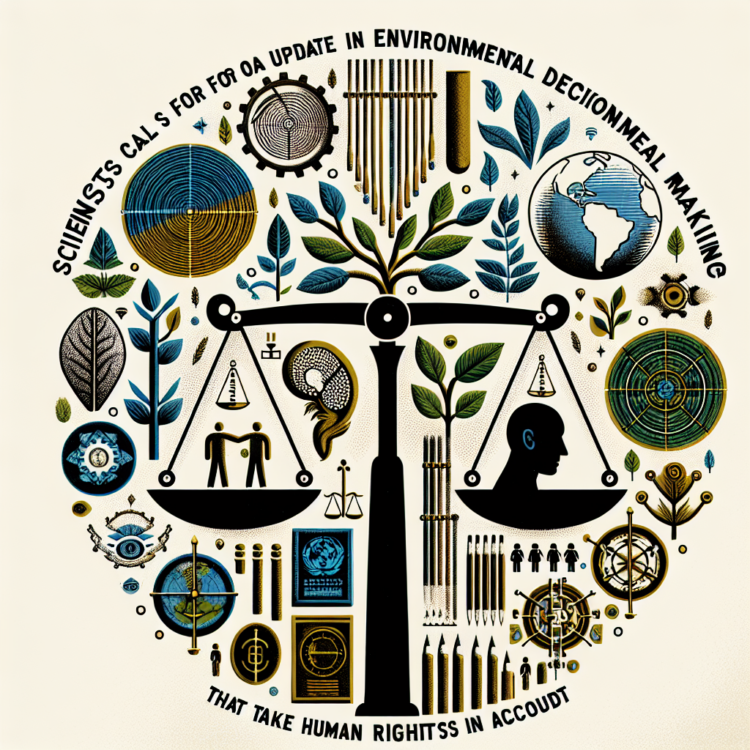Human wellbeing is connected to nature for food, climate regulation and culture, making the protection of nature a human rights matter.
Human wellbeing is connected to nature for food, climate regulation and culture, making the protection of nature a human rights matter.
Added to that, recent developments in international human rights law highlight that governments need to consider human-nature connections when making decisions that may affect the environment.
In a commentary published in npj Ocean Sustainability, an interdisciplinary group of researchers – including experts in ecosystem services, environmental governance, deep-sea ecology, and law – underscore that these developments should prompt a rethink of how any environmental decisions that hold the potential to impact biodiversity are made.
They argue this rethink should centre around assessments of foreseeable harm, and that any ability to foresee harms to human wellbeing is sufficient to prompt precautionary action to avert it.
Doing this would mark a significant evolution of current environmental decision-making which, they say, is presently “constrained by a perceived need for quantified certainty in impact assessment”.
Critically, the authors outline that human rights law shows that available evidence should be integrated into decision-making, even when considered uncertain.
Considering this, they have called for all environmental decisions globally to take account of key scientific and ecological evidence – including the knowledge and cultures held by local communities – and new ecosystem system service risk-based research methods that can provide an assessment of precaution, when they are making environmental decisions.
This, the researchers say, will ensure that the ecosystems vital for human wellbeing across the planet are appropriately accounted for in decision making.
The article was authored by researchers from the University of Plymouth and the University of Strathclyde, working as part of the One Ocean Hub – an international programme aiming to support fair and inclusive decision-making for a healthy ocean for people and planet.
Dr Holly Niner, Global Challenge Research Fellow at the University of Plymouth and lead author, said: “There are significant parts of our planet – for example, the deep ocean – that we currently know very little about. However, we know that these regions are critical for human wellbeing for global society. Uncertainty in understanding and lack of formalised, statistically certain evidence of the dependency of people to these regions should not be reason to exclude these connections in decisions-making that pose a potential risk of harm. If we are to protect the planet and human wellbeing, we need to consider the full picture and accept that biodiversity cannot and does not exist in a silo. This article makes the argument for addressing this and setting the critical connections between people and nature at the centre of decision-making.”
The study’s senior author Dr Sian Rees, Associate Professor of Social-Ecological Systems (Research) at the University of Plymouth, added: “Biodiversity loss is not just about a quantified decline in habitats and species, or a tradeable good in cost-benefit analysis. If we are to truly change our approach to protecting it now and for future generations, we need to challenge the current context for all environmental decision-making. We can start to do that by ensuring biodiversity loss is considered a human rights issue, and that environmental decision-making needs to align with advances in international human rights law.”
The challenges of environmental decision-making: the case of the deep ocean
They account for around 60% of Earth’s surface area, but large areas of the deep ocean remain completely unexplored. What is known about them, however, is that the habitats and biodiversity they support contributed to the health of the entire planet and global humanity.
Writing in the npj Ocean Sustainability article, the researchers highlight how it is possible to broadly describe the ecological and spiritual connections between people and the deep-sea via methods developed through ecosystem services research.
Accordingly, the authors argue, sufficient evidence is available to assess foreseeable harm and to integrate these values, and precautionary approaches, into any decisions that pose a potential risk loss or degradation to biodiversity and human wellbeing.
Journal
npj Ocean Sustainability
Method of Research
Commentary/editorial
Subject of Research
Not applicable
Article Title
Connecting ecosystem services research and human rights to revamp the application of the precautionary principle
Article Publication Date
24-Jul-2024




